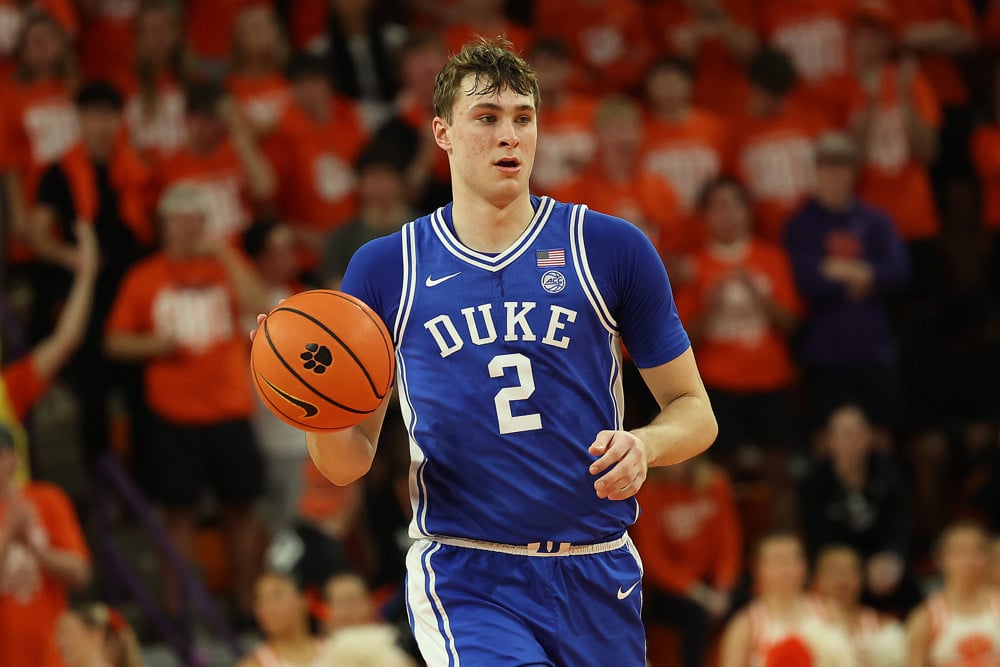The greatest sports-viewing week of the year is upon us. It’s time for madness.
On Sunday, the NCAA Tournament selection committee revealed the 68 teams that will participate in this year’s Big Dance. It’s arguably the best postseason in American sports, and it’s also one of the greatest gambling events of the year. The American Gambling Association estimated that Americans will gamble $3.1 billion on the tournament this year, up from $2.7 billion last year. Despite the widespread adoption of online sports gambling, the most widespread and accessible way to get some action on the tournament is via filling out a bracket.
Most people don’t spend that much time on their bracket, or they spend too much time on things that don’t improve their bottom line very much. Making a bracket is supposed to be fun, and approaching it exclusively from a game theory optimal perspective may not sound like fun to some of the population, but you know what’s fun? Winning. And if you take the time to put some thought into your bracket, you can significantly improve your chances of winning some money since there aren’t many games with as much soft money in the ecosystem. Today, we’ll dig into optimal bracket strategy to give you an edge over the competition.
WHO SHOULD I PICK TO WIN IT ALL?
When you fill out a March Madness bracket, the optimal strategy usually isn’t just to pick who you think will win every game. Otherwise, your bracket would basically be chalk (maybe a chalk bracket based on KenPom or gambling odds) because the better seed (or favored team) usually has a >50% chance to win.
The goal is to beat everyone else in your pool. That might sound like the same thing as picking all of the winners, but it’s not. We’ll rewind to 2021 and use the Gonzaga Bulldogs as an example. That year, the Zags were the No. 1 overall seed and entered the NCAA Tournament undefeated. 34.4% of brackets picked them to cut down the nets in April. Coincidentally, KenPom also gave Gonzaga — whom he had rated as one of the best teams of the previous two decades — a 34.4% chance of winning the title. If we use KenPom as our source of truth for this exercise, which isn’t perfect but will do better than most free resources, there was no actual edge in picking the Zags to win it all. Their true probability of winning the title was roughly the same as the percentage of brackets that picked them. Even if the Bulldogs had beaten Baylor in the national championship game, any bracket that picked them still would have had to beat out one-third of the rest of their pool to actually win.
If your bracket pool is you and one of your friends, Gonzaga likely was the optimal choice in 2021 because your opponent probably didn’t pick them, and even if they did, it’s easy enough to give yourself an edge over one other person. But in a pool with thousands of entrants, there were likely better choices. Just like in DFS, it’s not as easy as simply playing the best plays; you also have to take ownership into account.
Payout structure is also an enormous factor here. The explanation above assumes you’re in a somewhat top-heavy pool where either the winner takes all or only a few spots get paid out. If your pool simply cuts the field in half at the end and everyone in the top half doubles their money, then picking one of the top seeds would be optimal almost regardless of ownership. But, in general, as your pool gets larger and payout structure gets top-heavier, the more contrarian you need to be.
Lastly, scoring settings are pretty critical as well. On ESPN, correctly picking the winner of a first-round matchup is worth 10 points. Picking the correct champion is worth 320 (plus all of the points that team accumulated from winning in previous rounds). Most years, it’s impossible to win a decent-sized pool on ESPN without correctly picking the champion and usually a few of the other Final Four teams. Just something to keep in mind when you are stressing over a random 7-10 game in the Round of 64 — unless your pool is truly massive, it’s much more important to focus on optimizing the later rounds.
Most pool-hosting sites make it pretty easy to see ownership. On Yahoo, there’s a public pick percentage tab that shows you not only champion ownership but also the public percentages for every team in every round. Other platforms have similar versions. ESPN should post ownership later in the week under a “Who Picked Whom” tab showing what percent of public brackets are taking each team to advance to each round. Checking ownership one last time on either Wednesday night or Thursday morning before brackets lock will give you the best sense of who the public is picking. From there, you can compare those percentages to sites like KenPom, TeamRankings, or sportsbook odds to figure out a team’s true chances of winning the natty and build your bracket out from there. It’s also important to personally reflect upon your pool’s demographics. I went to the University of Illinois, so some of my pools skew very Illini-heavy. I’ll root against my bracket when the Illini are playing, but picking Illinois to lose in the first couple of rounds could be optimal if half the field I’m competing against has them making the Final Four.
HOW CONTRARIAN DO I NEED TO BE?
With that in mind, the next question is how contrarian you need to be. The answer depends primarily on your pool and who you picked as your champion. If you’re in a pool with tens of thousands of opponents and you picked Duke to win the title, you probably need to project some chaos elsewhere to have a chance to win. If you pick a team like Gonzaga to win it all, you probably don’t need to get too crazy elsewhere because you won’t need to beat very many people to take home the grand prize if the Zags win it all. However, you probably do need to get contrarian somewhere to win a big pool. That means:
- If you pick a chalk champion, you need to be contrarian elsewhere, whether that means picking a Cinderella Final Four team and/or making riskier picks in the early rounds.
- If you pick a contrarian champion (or generally go high-risk in the final rounds), there’s no need to strive for perfection early on, and you can play it safe by mostly relying on the models and odds.
In small pools, a fairly chalky bracket (ideally using KenPom or sportsbook odds as chalk instead of just seed lines) should be close to optimal. If your pool only has ~10 people in it, it might be best to just pick Duke/Houston vs. Auburn/Florida in the national championship game, even if it’s not the most exciting pick in the world. ETR did a podcast last year with TeamRankings’ Jason Lisk (and we have another great one this season), and he noted that he thinks the most common mistake people make is going overly contrarian in small pools. With the reputation of March Madness, many people feel inclined to force upsets, even if the numbers indicate it’s not correct to do so. In fact, there aren’t an outlier amount of upsets in the tournament — it’s just that there are 63 games and the less likely event is bound to happen in some of them.
Even that needs a caveat though, as some pools reward players for picking more upsets. If you get the same amount of points for correctly picking a Round of 64 game regardless of who wins, then you should probably pick a lot of the better seeds to advance. However, if you get bonus points for picking an upset (e.g., you get as many points as the seed of the team that wins), then you probably should consider picking some upsets. Your scoring settings and pool size impact which spots are high-leverage and how contrarian you need to be, respectively.
INJURY NEWS AND RECENT TEAM CHANGES
- Duke’s Cooper Flagg – the likely Wooden Award winner and presumptive No. 1 overall pick in the NBA Draft – twisted his ankle in the ACC Tournament semifinals. Duke and the ACC both relayed to the NCAA that Flagg would be ready for the tournament, and there were reports from the day after the injury that he was moving around well at team shootaround, but Flagg is arguably the single most valuable player in the country, and it would be massive if he’s unable to go. However, at this point, he’s expected to play.
- Houston’s J’Wan Roberts suffered an ankle injury in Houston’s first Big 12 Tournament game and missed the rest of the tourney (Houston still won). He noted in postgame interviews after the injury that he wouldn’t play the rest of the conference tournament in anticipation of being ready for the big tournament. With that in mind, I expect him to play, but another one to keep an eye on.
- Iowa State’s Keshon Gilbert has been ruled out for the NCAA Tournament. He’s had a tumultuous last two months dealing with injury (and rumors of something else, possibly mental, behind the scenes) but began the year as Iowa State’s best player. The Cyclones will be at less than full strength all tournament without him. Tamin Lipsey also didn’t play in ISU’s Big 12 Tournament loss to BYU but is expected to play in the NCAAT.
- Tyrese Hunter was in a boot for Memphis’ AAC Tournament championship game against UAB and the broadcast team mentioned they hadn’t heard great things. We don’t have actual news there, but based on the comments from the broadcast, my best guess would be that he’s out for at least the first round of the tournament (but we’ll know more later in the week – they do play on Friday, which helps).
- Texas Tech’s Darrion Williams and Chance McMillian missed the Big 12 semifinal game against Arizona but are expected to play in the first round of the NCAA Tournament. Both players have been banged up for a few weeks now and will be operating at less than 100%, and they could play less than normal minutes, especially if TTU opens up a double-digit lead. Williams is arguably their second-best player and McMillian is one of the best shooters in the country. Both are highly valuable, and TTU is capable of making a deep run simply because they can shoot the lights out, but they need Williams and McMillian to play.
- Boogie Fland (15.1 points and 5.7 assists) hasn’t played for Arkansas since January but went through a full practice on Sunday, meaning he could play in the first round of the tournament. Adou Thiero is unlikely to play for Arky this weekend but could return if the Razorbacks make it to the Sweet 16.
- Kentucky’s Jaxson Robinson hasn’t played since February 26. Averages 13.0 points per game and has started all 24 games he’s participated in this year.
- Alabama’s Grant Nelson suffered a knee injury in the Crimson Tide’s SEC semifinal loss to Florida and is seeing a knee specialist to get more information. He’s been battling through injury for a while but evidently aggravated it this weekend. He’s their second-best player.
- Baylor starting C Josh Ojianwuna is out for the year, leaving Norchad Omier as the Bears’ only big man. If they run into competent big men (hint: Duke in Round 2), they may not have the size to compete.
QUICK HITTERS
A brief (and random) list of things to know about this year’s group of 68 teams:
- This is arguably the strongest group of No. 1 seeds ever. In fact, Duke has the single highest KenPom adjusted efficiency margin since 2002, and Florida, Houston, and Auburn are all in the top six. Duke’s rating hinges heavily on Flagg’s health and Houston’s (to a lesser extent) on Roberts’, but if healthy, there’s a pretty straightforward argument that this is the best group of top seeds we’ve seen this century. All four No. 1 seeds would comfortably be the best team in the country most years.
- Colorado State is favored over Memphis and likely would be even if Tyrese Hunter plays. CSU is rated higher than Memphis on KenPom, and betting markets have been lower on Memphis than KenPom all season. In a casual pool, CSU is an easy play given they are the worse seed but the better team.
- UC San Diego is one of the best No. 12 seeds in recent memory. The Tritons ran through the Big West and rank 36th on KenPom, led by star Kiwi Aniwaniwa Tait-Jones. UCSD is currently a 2.5-point underdog against Michigan; in most pools, it’s not necessary to pick them, but if you get rewarded for picking upsets, go ahead and take the Tritons. Similarly, VCU is an abnormally strong No. 11 seed and are only small underdogs to BYU, so they are another easy take if your pool rewards you for picking seed-line upsets. If North Carolina beats San Diego State in the play-in game, they will also be only small underdogs to Ole Miss in Round 1.
- Gonzaga is a fringe top-10 team in the country but is a No. 8 seed. The Zags are ninth on KenPom, 11th on BartTorvik, and eighth on EvanMiya. The metrics love them, but their resume wasn’t good enough to get a higher seed. Houston is the No. 1 seed that lost the Gonzaga lottery and will unfortunately have a brutal second-round matchup against a Zags team that is just as good as they usually are but didn’t have the wins to warrant a better seed.
- The reigning back-to-back champion UConn Huskies have had a rough year. They’ve dealt with injuries to important pieces at times but haven’t really gelled even when healthy. They are fairly seeded as a No. 8 seed based on KenPom, but it’s worth noting the betting markets have been higher on UConn than metric-based sites all year (in Round 1, KenPom has UConn by 1, but the consensus spread is Huskies -4.5). Basically, they’re likely slightly undervalued by the analytical sites, but they are nowhere even close to as dominant as they have been the past two seasons.
TEAM RECOMMENDATIONS BY POOL SIZE
Finally, we’ll touch on some specific team recommendations based on pool size. This is inexact because we are using fairly large buckets (i.e., a 1,000-person pool shouldn’t be treated the same as a 10,000-person pool).
Small pool (<25 people): This is the strongest group of No. 1 seeds in recent memory. The worst No. 1 seed on KenPom is still 2.9 adjusted points per 100 possessions better than the next-closest team. There’s no reason to get cute here. I’d take Duke as the highest-rated team, but you can’t go wrong with any of the top four.
Medium (25-100): I’m still taking a No. 1 seed in any pool under 100 people. If you want to be very slightly contrarian, perhaps you take Florida instead of Duke, but again, with how strong this crop of No. 1 seeds is, there’s no reason to get cute.
Large (100+): The strategy for this bucket will vary wildly based on exactly how many people are in your pool. If there’s 200, I’m likely still taking a No. 1 seed but perhaps opting for Houston/Florida instead of Duke/Auburn (pending public pick percentages – it’s possible I am underestimating at this point how owned Florida will be relative to Duke) and maybe getting slightly contrarian somewhere smaller (Gonzaga to the Sweet 16, for example). If your pool has 1,000 entrants, you will need to get contrarian somewhere. Think of it this way: You aren’t going to win if your champion doesn’t win based on most scoring settings, and if you pick Duke along with 20% of the pool, you need to beat out 200 other people to win the grand prize.
Very large (thousands of entrants): Gonzaga is going to be the sexiest “contrarian pick” given they rank ninth on KenPom but are sitting as a No. 8 seed in their region. Louisville is also a strong No. 8 seed (KenPom No. 23), and Auburn is actually the lowest-rated No. 1 seed on KP despite being the top-rated overall team by the tournament selection committee. Maybe you take Gonzaga to win it all or Louisville to the Elite Eight, but checking/gauging ownership for the pool you are playing on is paramount here. You certainly still can take a No. 1 seed to win it all if there’s value relative to ownership, but you likely have to get contrarian somewhere to win.
P.S. Our friends at PoolGenius run millions of bracket pool simulations to identify the top-EV brackets for all different flavors of pool types. To unleash the algos on your specific pool characteristics, check out their NCAA Bracket Picks product, and take advantage of a March Madness discount for the ETR community.


